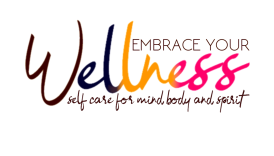The Ultimate Guide to Achieving Good Health Through Lifestyle Choices

In today’s fast-paced world, many individuals find themselves grappling with the consequences of their lifestyle choices. The choices people make daily can significantly influence their physical and mental wellbeing. Whether it’s what they eat, how much they move, or how they manage stress, each aspect plays a crucial role in shaping overall health.
- The Ultimate Guide to Achieving Good Health Through Lifestyle Choices
- The Challenge Ahead
- Understanding the Impact of Lifestyle Choices on Health
- The Ripple Effect
- Importance of Nutrition
- Balanced Diet
- Nutrient-Rich Foods
- The Role of Physical Activity
- Types of Exercise
- Benefits of Regular Physical Activity
- Importance of Adequate Rest and Sleep
- The Science of Sleep
- Creating a Sleep-Conducive Environment
- Managing Stress Levels
- Understanding Stress
- Effective Stress Management Techniques
- Maintaining a Healthy Body Weight
- The Balance of Calories In and Out
- Strategies for Weight Maintenance
- The Significance of Hydration
- The Role of Water in the Body
- Tips for Staying Hydrated
- Incorporating Mindfulness Practices
- The Essence of Mindfulness
- Ways to Practice Mindfulness
- Building Strong Relationships for Better Health
- The Power of Social Connections
- Ways to Cultivate Strong Relationships
- Avoiding Harmful Substances
- The Risks of Harmful Substances
- Strategies for Avoidance
- Regular Health Screenings and Check-ups
- The Importance of Screenings
- Recommended Screenings
- Implementing Sustainable Lifestyle Changes
- The Power of Sustainable Changes
- Strategies for Successful Implementation
- Setting Realistic Health Goals
- The Importance of Realistic Goals
- How to Set Realistic Health Goals
- Conclusion
- The Journey Ahead
The Challenge Ahead
Navigating the plethora of information about health can be overwhelming. However, understanding the fundamental elements of a healthy lifestyle can empower individuals to take actionable steps towards improvement. For instance:
- What you consume can either nourish or deplete your body.
- Regular exercise not only boosts physical health but also enhances mental clarity and mood.
- Adequate rest is essential for recovery and rejuvenation.
By focusing on these critical factors, one can create a balanced approach that fosters a healthier life. In the sections that follow, we will explore each component in detail, providing valuable insights and tips for implementation.
Understanding the Impact of Lifestyle Choices on Health
As we delve deeper into the intricate relationship between lifestyle choices and health, it’s essential to recognize how interconnected these factors are. Every decision, from what we eat to how we spend our leisure time, may have a lasting effect on our wellbeing.
The Ripple Effect
Consider this: When someone chooses to indulge in a late-night snack instead of opting for whole foods, it doesn’t just impact their immediate energy levels; it may also disturb their sleep patterns and influence their mood the next day. Here are a few key considerations:
- Diet: Poor nutrition can lead to chronic diseases like obesity and diabetes.
- Exercise: Sedentary lifestyles can increase the risk of cardiovascular problems.
- Sleep: Lack of adequate rest affects cognitive function and emotional stability.
Recognizing these impacts is the first step towards making informed changes that lead to a healthier lifestyle. By being mindful of our choices, we can take control of our health trajectory.
Importance of Nutrition
Having established the profound impact of lifestyle choices on health, it becomes crystal clear that nutrition plays a pivotal role in this equation. By focusing on what we consume, we can significantly enhance our overall wellbeing.
Balanced Diet
A balanced diet consists of the right proportions of carbohydrates, proteins, fats, vitamins, and minerals. It’s like putting together a puzzle; each piece is crucial to complete the picture. For instance, making a conscious effort to include various food groups can help maintain that balance:
- Fruits and Vegetables: Aim for a colorful variety for essential vitamins.
- Whole Grains: Choose brown rice or whole-grain bread for fiber.
- Lean Proteins: Incorporate foods like chicken, fish, and legumes.
Nutrient-Rich Foods
For optimal health, selecting nutrient-rich foods is key. These foods provide more vitamins and minerals relative to their calorie content. Imagine this: instead of munching on chips, reaching for a handful of nuts could offer not just energy but also healthy fats and protein. Consider these powerhouse foods:
- Leafy Greens: Spinach and kale are packed with nutrients.
- Berries: Low in calories, high in antioxidants.
- Legumes: Beans and lentils are great sources of protein and fiber.
Embracing the importance of nutrition can set the foundation for a vibrant, healthy life. Making simple, mindful choices about food can empower individuals to enjoy a greater quality of life.
The Role of Physical Activity
Continuing from the essential role of nutrition, it’s crucial to highlight another pillar of health—physical activity. Regular movement not only complements a balanced diet but also amplifies the benefits of good nutrition.
Types of Exercise
Exercise comes in various forms, making it accessible for everyone. Finding the right type can be enjoyable and fulfilling. Here are some popular categories:
- Aerobic Activities: Running, cycling, or swimming elevate heart rate and boost endurance.
- Strength Training: Lifting weights or using resistance bands builds muscle and bones.
- Flexibility Exercises: Yoga and stretching promote better posture and reduce injuries.
Benefits of Regular Physical Activity
Engaging in physical activity has myriad benefits that go beyond just physical appearance. Imagine waking up with increased energy and a brighter mood—that’s the power of movement! Some key advantages include:
- Improved Cardiovascular Health: Regular exercise strengthens the heart and reduces the risk of heart disease.
- Weight Management: Physical activity helps maintain a healthy body weight.
- Mental Wellbeing: Exercise releases endorphins, which can alleviate symptoms of anxiety and depression.
By incorporating regular physical activity into daily routines, individuals create a supportive environment for their overall health journey, fostering both physical strength and emotional resilience.
Importance of Adequate Rest and Sleep
As we explore the intertwined aspects of health, we can’t overlook the significance of adequate rest and sleep. Just as nutrition and exercise fuel our bodies, sleep is equally vital for restoring and rejuvenating them.
The Science of Sleep
Sleep is not merely a break from reality; it’s a complex physiological process. Quality sleep tackles crucial responsibilities:
- Cell Repair: During sleep, the body repairs tissues and replenishes energy.
- Memory Consolidation: Sleep helps solidify learning and memory retention.
- Hormonal Balance: Adequate rest regulates hormones that control appetite and stress.
Creating a Sleep-Conducive Environment
To harness the benefits of sleep, consider optimizing your sleeping conditions. For example:
- Darken the Room: Use blackout curtains to eliminate light exposure.
- Limit Electronics: Reduce screen time an hour before bed to promote relaxation.
- Establish a Routine: Going to bed and waking up at the same time every day fosters a natural sleep cycle.
By prioritizing adequate rest, individuals can enhance their physical performance, mental clarity, and overall health, paving the way for a more energized and productive life.
Managing Stress Levels
Having established the vital role of adequate rest and sleep, we now turn our focus to another critical component of health: managing stress levels. Stress is an inevitable part of life, but how one responds to it can significantly impact physical and mental health.
Understanding Stress
Stress triggers the release of hormones, which can be beneficial in short bursts; however, chronic stress can wreak havoc on the body. Personally, I’ve noticed that when I’m stressed, I become more prone to headaches and fatigue. Recognizing stress signs is the first step to management.
Effective Stress Management Techniques
Here are some effective strategies to help manage stress:
- Mindfulness and Meditation: Taking a few moments each day to meditate can help center the mind.
- Physical Activity: Remember that exercise isn’t just for fitness—it’s a powerful stress reliever, too!
- Deep Breathing Exercises: Simple techniques can calm the mind and lower heart rates.
By actively managing stress, individuals not only improve their emotional wellbeing but also enhance their overall health, making way for a more balanced, fulfilling life.
Maintaining a Healthy Body Weight
Following our discussion on managing stress levels, let’s shift our focus to maintaining a healthy body weight. Achieving and sustaining a healthy weight contributes significantly to overall wellbeing and plays a crucial role in preventing various health issues.
The Balance of Calories In and Out
Maintaining a healthy body weight hinges on the balance between calories consumed and calories burned. I’ve learned firsthand that keeping a food diary can help track intake effectively. Here are key points to consider:
- Mindful Eating: Pay attention to hunger cues and savor each bite, which can help prevent overeating.
- Portion Control: Using smaller plates can visually trick the brain into feeling satisfied with less food.
Strategies for Weight Maintenance
Consider incorporating these strategies into your routine:
- Regular Exercise: Aim for a mix of cardio and strength training to keep metabolism active.
- Healthy Snacking: Opt for nutritious snacks like fruits and nuts instead of processed options.
By prioritizing these practices, individuals can create a sustainable path towards maintaining a healthy body weight, further enhancing their overall quality of life.
The Significance of Hydration
As we continue our journey towards holistic health, we must highlight the significance of hydration. Often overlooked, water is essential for nearly every function in the body, acting as a vital component in maintaining overall health.
The Role of Water in the Body
I used to underestimate how much hydration affected my energy levels until I experienced afternoon slumps from dehydration. Water plays several crucial roles, including:
- Regulating Body Temperature: It helps maintain thermal balance during activities.
- Nutrient Transportation: Water aids in delivering nutrients to cells effectively.
- Digestive Health: Proper hydration keeps the digestive system functioning smoothly.
Tips for Staying Hydrated
To ensure adequate hydration, consider the following tips:
- Carry a Water Bottle: Having water on hand serves as a constant reminder to drink.
- Infuse Your Water: Adding options like lemon or cucumber can make drinking water more enjoyable.
- Set Reminders: Use phone alerts to prompt you to drink throughout the day.
By prioritizing hydration, individuals can enhance energy levels, improve concentration, and support overall health, paving the way for a more active and vibrant life.
Incorporating Mindfulness Practices
Having explored the importance of hydration, we now turn our attention to another essential aspect of health: incorporating mindfulness practices. In a world filled with distractions, mindfulness allows individuals to reconnect with themselves and cultivate a more balanced state of mind.
The Essence of Mindfulness
At its core, mindfulness is about being present in the moment. I remember the first time I tried mindful breathing; dedicating just five minutes to focus on my breath transformed my level of stress and anxiety. Here are some benefits of practicing mindfulness:
- Improved Focus: Mindfulness helps sharpen attention and concentration.
- Enhanced Emotional Resilience: It can promote a healthier response to stress and anxiety.
Ways to Practice Mindfulness
Incorporating mindfulness into daily life doesn’t have to be daunting. Here are some simple techniques to get started:
- Mindful Breathing: Set aside a few minutes each day to focus on your breath.
- Gratitude Journaling: Writing down things you’re thankful for fosters appreciation and presence.
- Mindful Eating: Pay attention to flavors and textures during meals to enhance your relationship with food.
By integrating mindfulness practices into daily routines, individuals can cultivate greater awareness, reduce stress, and enhance overall wellbeing, leading to a more peaceful and fulfilling life.
Building Strong Relationships for Better Health
Following our exploration of mindfulness practices, it’s important to recognize the profound impact that strong relationships have on overall health. Human connections play an integral role in emotional wellbeing, providing both support and joy in our lives.
The Power of Social Connections
Throughout my journey, I’ve found that spending time with family and friends has consistently lifted my spirits. Scientific studies echo this sentiment—people with strong social ties are often happier and healthier. Here’s why:
- Emotional Support: Friends and family provide comfort during challenging times.
- Accountability: Having a workout buddy can motivate you to stay active.
Ways to Cultivate Strong Relationships
Building and maintaining strong connections doesn’t have to be complicated. Consider these simple steps:
- Prioritize Quality Time: Schedule regular get-togethers or calls to nurture relationships.
- Be Present: Practice active listening and engage fully during conversations.
- Express Gratitude: A small “thank you” or acknowledgment can strengthen bonds.
By investing in relationships, individuals not only enrich their lives but also enhance their health, paving the way for a supportive network that promotes overall wellbeing and happiness.
Avoiding Harmful Substances
As we continue our exploration of health, it’s crucial to discuss the importance of avoiding harmful substances. Just as nurturing relationships can boost wellbeing, protecting oneself from harmful elements is equally vital to maintaining good health.
The Risks of Harmful Substances
Over the years, I’ve seen friends struggle with the consequences of smoking and excessive drinking, and it always reinforces the importance of making healthy choices. Harmful substances can have detrimental effects on both physical and mental health, leading to:
- Addiction: Substances like tobacco and alcohol can create powerful dependencies.
- Health Issues: Long-term use can lead to chronic diseases such as heart disease and cancer.
Strategies for Avoidance
Here are some proactive strategies to help avoid harmful substances:
- Educate Yourself: Understanding the risks associated with substances can empower you to make informed choices.
- Seek Support: If you find yourself struggling, don’t hesitate to reach out to friends, family, or professionals.
- Explore Alternatives: Engage in healthier activities, such as sports or hobbies, to reduce exposure to tempting environments.
By making conscious choices to avoid harmful substances, individuals can protect their health and enhance their quality of life, paving the way for a brighter future.
Regular Health Screenings and Check-ups
Continuing on our journey toward improved health, it’s essential to emphasize the importance of regular health screenings and check-ups. Just as we cannot neglect our nutrition, exercise, or relationships, proactive health management is key to long-term wellbeing.
The Importance of Screenings
During my own health journey, I learned that routine check-ups can catch potential issues before they escalate. Screenings are invaluable as they:
- Detect Issues Early: Early detection of health concerns can lead to more effective treatment.
- Monitor Existing Conditions: Regular check-ups allow you to manage chronic conditions effectively.
Recommended Screenings
Here are some recommended screenings to consider based on age and risk factors:
- Blood Pressure Checks: To monitor heart health.
- Cholesterol Tests: To evaluate cardiovascular risk.
- Cancer Screenings: Such as mammograms or colonoscopies based on guidelines.
By prioritizing regular health screenings and check-ups, individuals can take charge of their health, leading to early intervention and ultimately, a more fulfilling and vibrant life.
Implementing Sustainable Lifestyle Changes
As we conclude our discussion on the importance of regular health screenings, it’s time to explore the concept of implementing sustainable lifestyle changes. Small, manageable adjustments to daily habits can lead to lasting, positive outcomes for health.
The Power of Sustainable Changes
I’ve found that making gradual changes rather than drastic overhauls typically leads to better adherence over time. Sustainable lifestyle changes are:
- Realistic: They fit seamlessly into daily routines.
- Adaptable: They allow for adjustments based on personal progress or challenges.
Strategies for Successful Implementation
To successfully incorporate sustainable changes, consider these tips:
- Set SMART Goals: Make your goals Specific, Measurable, Achievable, Relevant, and Time-bound. For example, instead of aiming to “eat healthier,” strive to “include two servings of vegetables in every meal.”
- Start Small: Begin with one change, such as drinking more water, before adding more adjustments.
- Track Progress: Keeping a journal can help maintain motivation and accountability.
By focusing on sustainable lifestyle changes, individuals can create a healthier future while fostering a sense of accomplishment and well-being along the way.
Setting Realistic Health Goals
Having explored the importance of implementing sustainable lifestyle changes, it’s essential to discuss the process of setting realistic health goals. Clear and achievable goals serve as a road map for health improvement and can keep you motivated along the journey.
The Importance of Realistic Goals
When I first started my health journey, I set overly ambitious goals that quickly became overwhelming. Realistic goals, on the other hand, are much more motivating because they are attainable and measurable. Here’s why they matter:
- Promote Success: Small wins build confidence and encourage continued effort.
- Reduce Frustration: Setting achievable goals helps prevent setbacks and discouragement.
How to Set Realistic Health Goals
Here are some effective strategies for setting your health goals:
- Break It Down: Instead of aiming for a drastic weight loss, aim to lose 1-2 pounds per week.
- Be Specific: Instead of saying “exercise more,” specify “walk for 30 minutes three times a week.”
- Celebrate Small Wins: Acknowledge and reward yourself for reaching short-term goals to stay motivated.
By setting realistic health goals, individuals can create a focused approach to their health journey, fostering motivation, and ultimately leading to long-term success.
Conclusion
As we wrap up our exploration of holistic health, it’s clear that achieving wellness is a multifaceted journey. Each aspect we’ve discussed, from nutrition and physical activity to mindfulness and social connections, plays a vital role in fostering overall wellbeing.
The Journey Ahead
Reflecting on my own progress, I realize that health is not a destination but a continuous journey. Embracing sustainable lifestyle changes and setting realistic goals can empower you to take charge of your health. Consider the following takeaways as you move forward:
- Prioritize Self-Care: Make time for nutrition, exercise, and mental health.
- Stay Informed: Regular check-ups and education about health topics keep you proactive.
- Build a Supportive Network: Surround yourself with people who encourage and motivate you.
By committing to these principles, individuals can pave the way for a healthier, happier life. Remember, each small step contributes to the larger journey toward wellness, so embrace the process and enjoy the ride!





